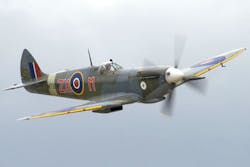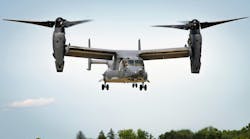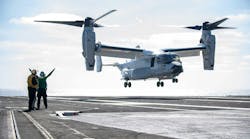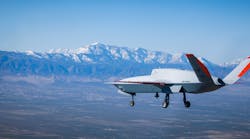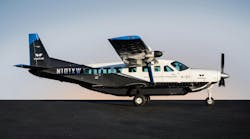Twenty Spitfire fighter aircraft buried in Myanmar during World War II are to be dug up and shipped back to Britain, officials say.
The planes will be returned to Britain as a result of intervention by British Prime Minister David Cameron, The Daily Telegraph reported.
The planes had been buried more than 40 feet beneath the ground for nearly 67 years because of fears of Japanese occupation.
Cameron reached a deal to have the aircraft unearthed and returned after he became the first Western leader to meet Aung San Suu Kyi, the Myanmar campaigner for democracy who had been under house arrest for 22 years under the previous military regime and was recently elected to Parliament.
David Cundall, 62, a farmer from Scunthorpe, North Lincs, located the planes at a former Royal Air Force base using radar-imaging technology after a 15-year search that cost him more than $207,000 and involved 12 trips to Myanmar.
After Cundall located the planes in February, he was told Cameron would have them returned to Britain.
"Spitfires are beautiful aeroplanes and should not be rotting away in a foreign land," Cundall said. "They saved our neck in the Battle of Britain and they should be preserved."
Cundall said the Spitfires -- only 35 in the world still fly -- were shipped to Myanmar, then taken by rail to the base during the war.
Because of technological advances and the development of more agile jets, the planes were never used, the Telegraph said. In July 1945, officials concerned about a possible Japanese occupation abandoned the planes, and they were buried on orders of Lord Louis Mountbatten, the head of South East Asia Command, two weeks before the atom bombs were dropped, ending the war.
"They were just buried there in transport crates," Cundall said. "They were waxed, wrapped in greased paper and their joints tarred. They will be in near perfect condition."
A British team is to soon begin the excavation, expected to cost about $797,000 and be funded by the Chichester-based Boultbee Flight Academy.
Copyright 2012 U.P.I.All Rights Reserved
